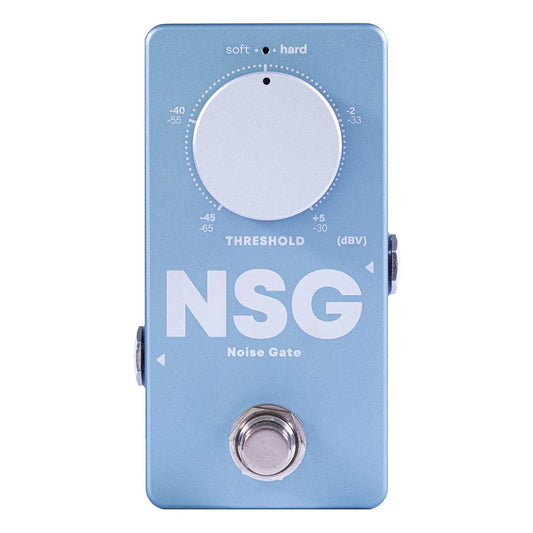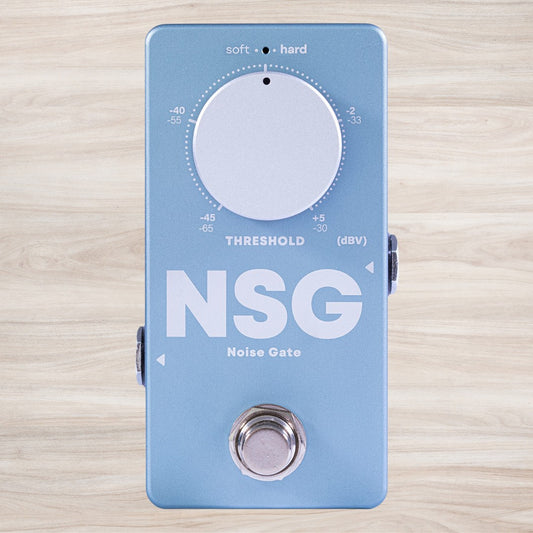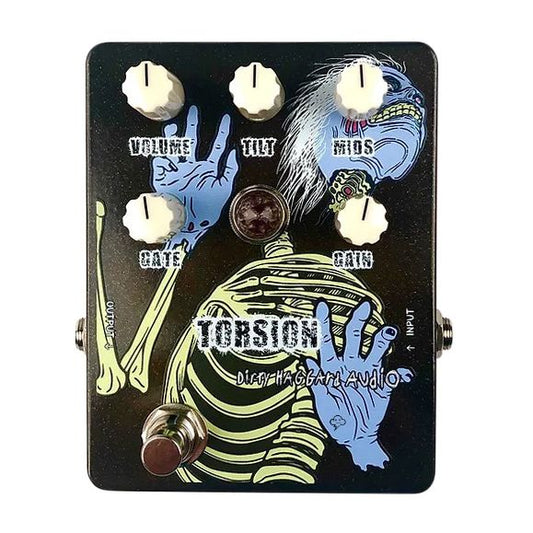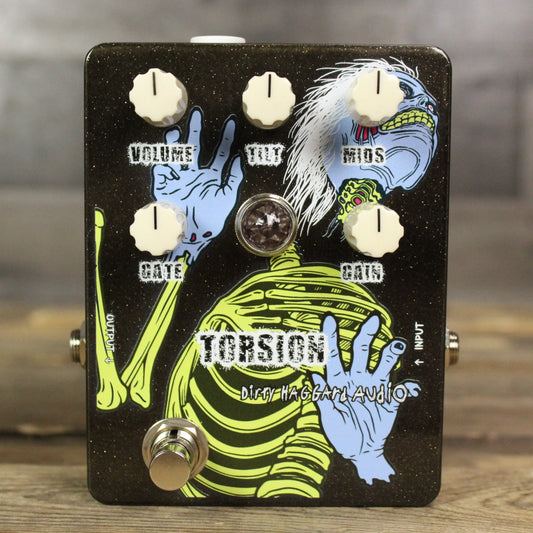Noise Gate Pedals
-
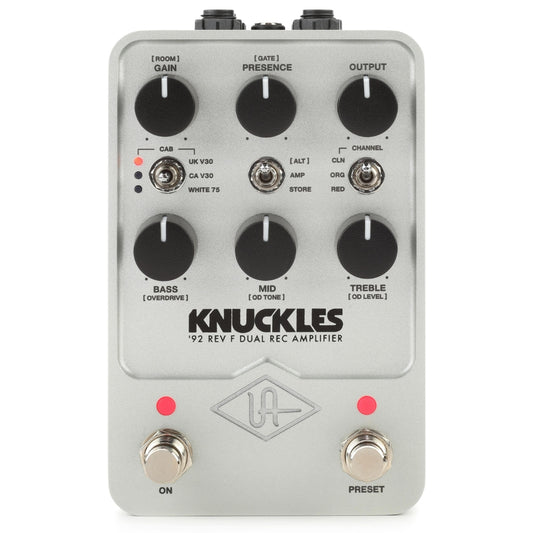
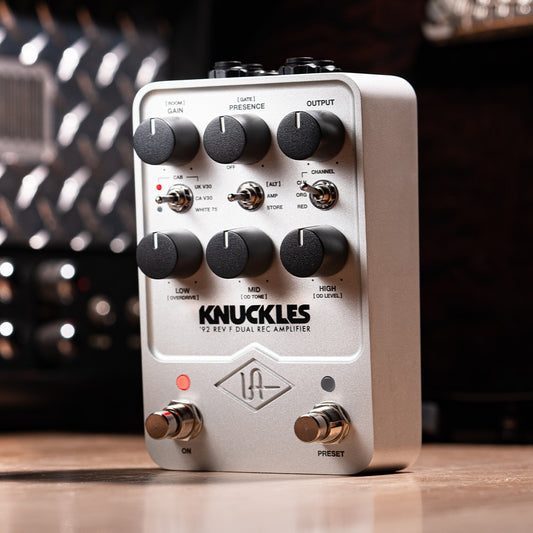 $100 off
$100 offUniversal Audio Knuckles '92 Pedal
No reviewsRegular price $399.00Regular priceUnit price / per$499.00Sale price $399.00$100 off -
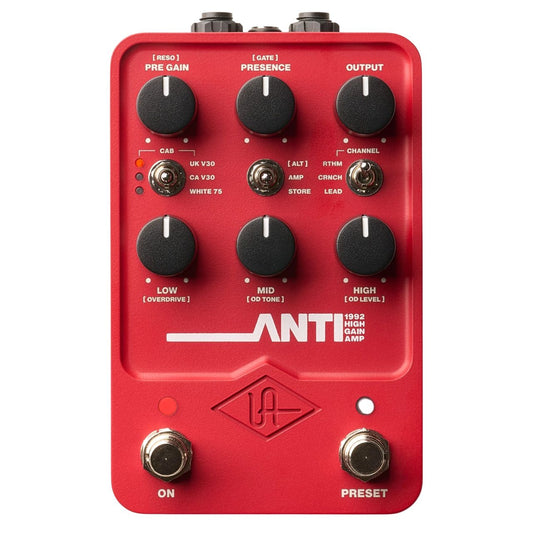
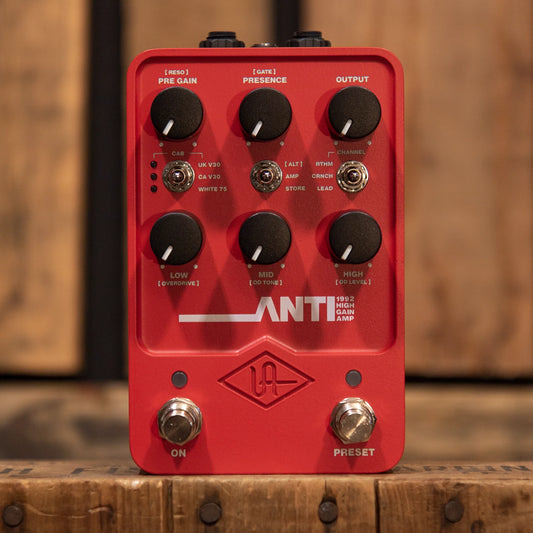 $100 off
$100 offUniversal Audio ANTI 1992 Pedal
No reviewsRegular price $399.00Regular priceUnit price / per$499.00Sale price $399.00$100 off -
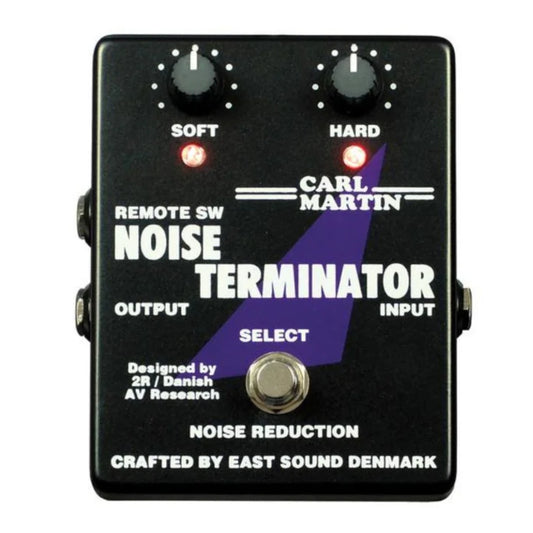
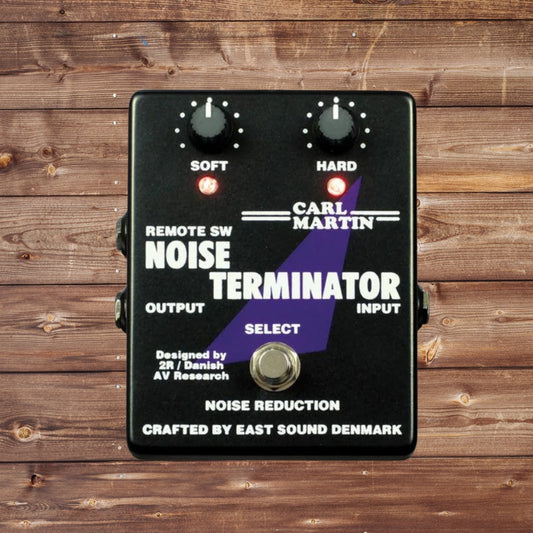 Sold out
Sold outCarl Martin Noise Terminator Pedal
No reviewsRegular price $169.00Regular priceUnit price / per$219.00Sale price $169.00Sold out -
Darkglass NSG Noise Gate Bass Pedal
No reviewsRegular price $229.99Regular priceUnit price / per$324.99Sale price $229.99$95 off -
Dirty Haggard Torsion Fuzz Pedal
Regular price $180.00Regular priceUnit price / per
Collection: Noise Gate Pedals
What does a Noise Gate Pedal do?
Do you want to eliminate the unwanted noise and hum in your pedalboard’s signal chain? Then, a noise gate pedal is needed for your rig.
A noise gate pedal is a tool that reduces or blocks unwanted noise coming from a musician’s signal chain. The effect pedal functions by allowing audio signals above a certain threshold to pass through while muting everything below the set threshold. This is extra useful in high-gain settings where amplifiers and effects noise can be heard while an instrument is not being played.
The usual control parameters of a noise gate effect pedal are the threshold, decay/release, attack, range, and hold. These knobs allow musicians to dial in the ideal amount of gate needed for their rig. Plus, using the pedal ensures a pro-sounding output during a live performance or studio recording by keeping the guitar tone clean from hisses when not in use.
History of the Noise Gate Pedal
Noise gates were initially developed for studio use in the late 1970s. Musicians and audio engineers needed solutions for managing unwanted buzz coming from effects-laden signal chains during recordings. The rack-mounted noise gates did their job by improving the tonal clarity of instruments by filtering out any background noise.
Eventually, rock and metal guitarists needed compact noise gates for better control over their rig’s additional noise during tours and live performances. Effect pedal brands like Boss and MXR were among the first to produce noise gate stompboxes, which became essential for these touring musicians.
Over time, the technology for noise gate pedals became more advanced and user-friendly, making it easier to tweak and employ in the signal chain. This made the effect a staple for musicians in various genres because of its effectiveness in both studio and live settings.
Where to put the Noise Gate Pedal in a Chain?
There are multiple ways to go about when placing a noise gate pedal in your signal chain. It mostly depends on what you are aiming for when it comes to your tone. Here are some examples:
- After High-Gain Pedals: You can place a noise gate after your overdrive, fuzz, or distortion pedals to ensure that any noise from these effects will be suppressed when you aren’t playing your guitar.
- Before Modulation and Time-Based Effects: Placing the noise gate before modulation (flanger, phaser, chorus) and time-based (reverb, delay) pedals will help retain the natural decay and trails of these effects. Having the noise gate in this position ensures that those effects are not cut off abruptly during a performance.
- In the Effects Loop: If you have an amplifier with an effects loop, you can place the noise gate in the loop. This helps control the noise from the preamp stage while maintaining the natural dynamics of your pedalboard’s signal chain.
Placing a noise gate in your signal chain needs strategic consideration to get the most out of it. Keep experimenting with different placements for your noise gate in your signal chain to find which setup works best for your playing style.
Who uses Noise Gate Pedals?
Noise gate pedals are used extensively by musicians across countless genres, particularly those with high-gain amplifiers and multiple effects pedals.
Rock and metal guitarists, such as Kirk Hammett and John Petrucci, have noise gates in their signal chains. This allows them to have their signature dirty tones while keeping their complex pedalboards sounding clean and professional.
Bassists like Billy Sheehan also benefit from having noise gates in their rigs. This helps maintain clarity in their basslines, especially when using dirt or other effect pedals. In studio settings, producers and audio engineers heavily employ noise gates to control any background noise to achieve premium-quality audio recordings.
Why You Need a Noise Gate Pedal
Having a noise gate pedal is crucial if you’re seeking a clean and polished sound during live shows or studio sessions. It guarantees that no problematic hums and background noises will go through during pauses or quiet moments.
Being able to control these unwanted noises results in a tighter and more focused guitar tone during performances. A noise gate pedal also guarantees that your primary guitar tone remains crisp and free from distractions, letting you focus more on playing without the worries of an unclean signal chain.
Whether you’re a touring musician or a bedroom guitarist, having a noise gate pedal in your arsenal ensures your tone remains clear and refined.
Where to Buy Noise Gate Pedals
You can find superb-quality noise gate pedals here at DeathCloud. Our vast selection of effect pedals includes noise gates from today’s leading boutique pedal manufacturers. Shop now at DeathCloud to find the perfect noise gate pedal that will match your setup.







